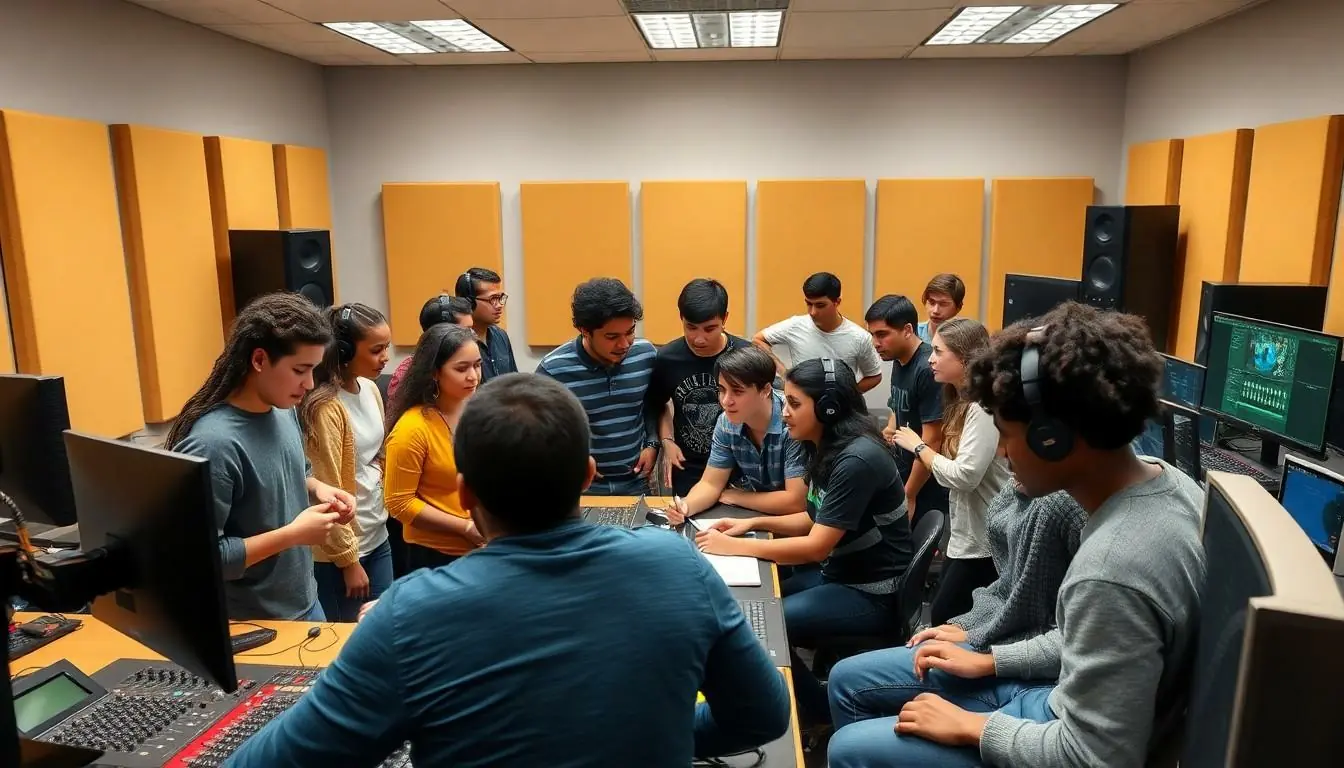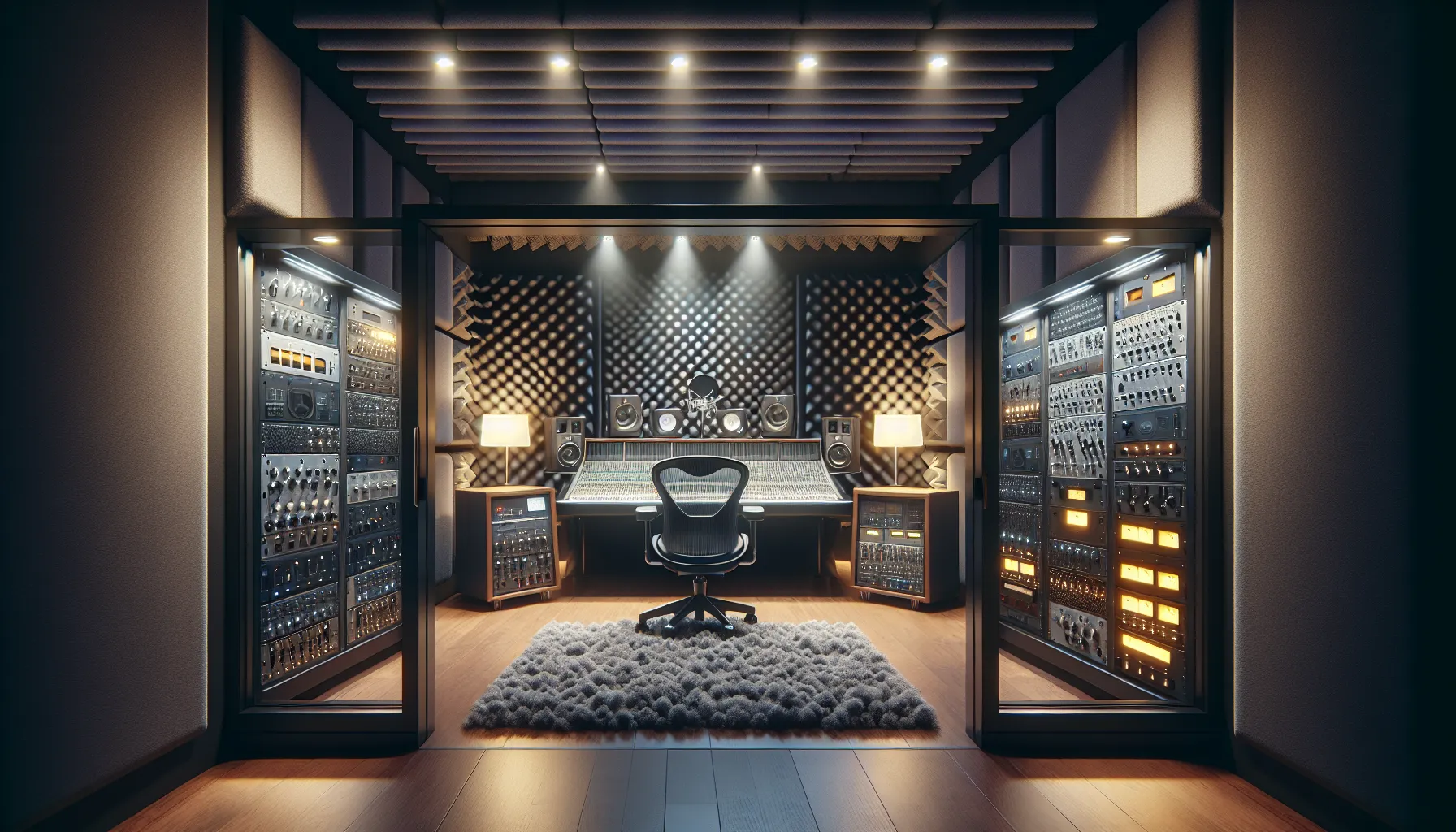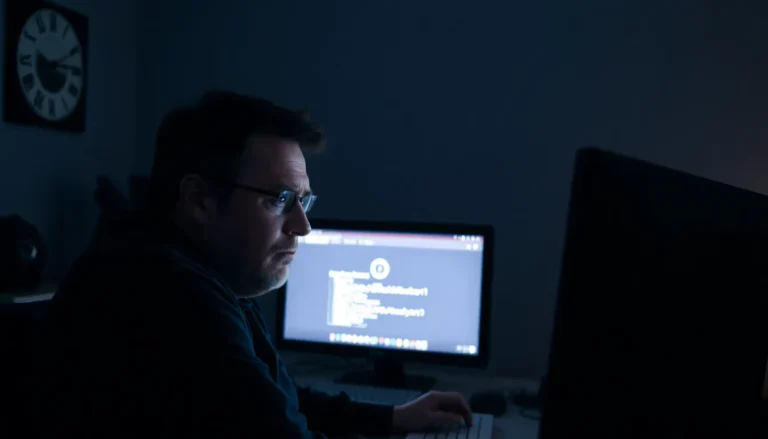Table of Contents
ToggleIn a world where everyone’s a critic and sound quality can make or break a hit, the demand for audio tech experts is booming. Imagine diving into a realm where you can turn your passion for music into a lucrative career. It’s not just about knowing the difference between a bass and a treble; it’s about mastering the art of sound.
Overview of Audio Tech School
Audio tech schools offer specialized training programs designed for aspiring professionals in the audio industry. Students learn essential skills in music production, sound engineering, and audio technology. Programs typically cover aspects like recording techniques, mixing, and mastering, ensuring students gain hands-on experience in real-world settings.
Various schools provide different focus areas, so individuals can find programs tailored to their interests, such as live sound, studio production, or post-production audio. Comprehensive curriculums often include theoretical knowledge and practical exercises, allowing students to develop a robust understanding of audio concepts and equipment.
Instructors at these institutions usually have extensive industry experience, giving students valuable insights and relevant knowledge. Networking opportunities often arise through workshops, events, and collaborations, which can lead to internships and job placements after graduation.
Graduates frequently secure positions in music studios, TV networks, and live event companies. Many audio tech experts also find success as freelance engineers, catering to various clients across different sectors. Schools may support students with job placement services, enhancing employment prospects in a competitive field.
With the audio industry’s continued growth, audio tech schools play a vital role in preparing the next generation of sound professionals. By mastering industry-standard tools and software, students position themselves for success in diverse audio-related careers.
Programs Offered

Audio tech schools provide various programs designed for aspiring sound professionals. Students can choose from certificate and degree options, tailoring their education to fit career goals.
Certificate Programs
Certificate programs focus on essential skills required for audio production. These shorter courses typically last from a few months to a year, offering targeted training in areas such as sound engineering, mixing, and mastering. Participants gain hands-on experience through practical projects, ensuring they understand the technical aspects of audio technology. Many schools emphasize real-world applications, allowing students to complete internships or collaborate with industry professionals. Graduates often enter the job market equipped to work in studios or events swiftly.
Degree Programs
Degree programs immerse students in comprehensive audio education, extending over two to four years. These programs cover a broad range of topics including music production, audio post-production, and digital media. Students learn theory alongside practical skills, preparing them for advanced positions in the audio industry. Coursework often includes multimedia production, film scoring, and acoustics, ensuring a well-rounded education. Faculty members, with significant industry experience, guide students through challenging projects and offer career advice. Graduates frequently secure roles in high-level production companies, entertainment studios, or pursue freelance opportunities.
Curriculum and Hands-On Experience
Audio tech schools prioritize a curriculum filled with practical applications and relevant technology.
Equipment Used
Students experience industry-standard equipment throughout their training. Consoles from brands like Avid and SSL provide students with familiarity in professional environments. They also utilize microphones from Shure and Neumann, essential for achieving high-quality sound. Digital audio workstations, such as Pro Tools and Ableton Live, play a significant role in the curriculum. Access to this technology ensures graduates leave with skills that employers look for, significantly enhancing employability.
Projects and Internships
Engaging projects form the cornerstone of learning. Students often work on real-world music production projects, simulating professional workflows. These collaborations allow students to refine their skills in mixing and mastering, preparing them for future roles. Internships represent a critical part of the learning process. Schools often partner with studios and live venues, providing students with valuable hands-on experience. Such opportunities allow individuals to connect with industry professionals and gain insights into the audio tech world.
Career Opportunities in Audio Tech
Audio tech careers offer diverse paths for those passionate about sound. Individuals can find fulfilling roles in various sectors such as music, film, and broadcasting.
Job Roles
Audio tech professionals fill several essential positions. They work as audio engineers, responsible for recording and mixing sound for music or film. Sound designers create auditory experiences for video games or theater productions. Live sound technicians manage audio during concerts or events, ensuring clarity and balance. Additionally, mastering engineers fine-tune final mixes for distribution. These roles require specific skills that audio tech schools thoroughly teach through hands-on training.
Industry Demand
The demand for audio tech professionals continues to rise. According to the Bureau of Labor Statistics, employment for audio engineers is projected to grow by 6% by 2031. Increased consumption of digital media fuels this growth, creating more opportunities in film, streaming, podcasts, and live events. Emerging technologies also contribute to expanding job roles within the industry. With the thriving entertainment landscape, audio tech graduates typically enjoy strong employment prospects immediately upon entering the workforce.
Alumni Success Stories
Numerous alumni from audio tech schools have achieved remarkable success in the music industry. One notable graduate, Alex Rivera, transformed his passion for sound engineering into a thriving career. After completing a degree program, he secured a position at a major recording studio, working with renowned artists.
Another success story features Jordan Lee, who excelled in live sound production. Equipped with skills gained from hands-on experience, Jordan landed a job as a live sound technician for a popular concert tour. Her expertise in using industry-standard equipment, like those found in her training program, played a crucial role in ensuring top-notch audio quality during live performances.
Emily Chen, a freelance audio engineer, highlights the value of internship opportunities provided by her audio tech school. Those internships allowed her to connect with industry professionals and build a strong portfolio. With a solid foundation in mixing and mastering, Emily has collaborated with various independent artists and gained recognition for her work.
Several alumni emphasize the importance of networking opportunities available through their schools. Sharing their knowledge and experiences, they often mention that the connections made during their studies opened doors to prestigious positions across the industry. Not only did these relationships lead to job offers, but also to collaborations that further advanced their careers.
Overall, the diverse paths taken by graduates illustrate the extensive career options within the audio tech field. Whether working in music production, sound design, or live event coordination, these successful individuals embody the value of the education received at audio tech schools. The achievements of alumni serve as an inspiration for current students, reinforcing the promise of a rewarding career in audio technology.
The audio tech industry is thriving and offers exciting career opportunities for those passionate about sound. By choosing the right audio tech school, individuals can acquire the skills and knowledge needed to excel in various roles within the field. With hands-on training and access to industry-standard equipment, graduates are well-prepared to meet the demands of employers.
Success stories from alumni highlight the potential for fulfilling careers in music production, sound engineering, and live sound. As the demand for audio professionals continues to grow, pursuing an education in audio technology can lead to a rewarding future. Embracing this journey not only enhances one’s technical abilities but also opens doors to a vibrant and dynamic industry.






